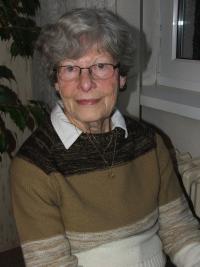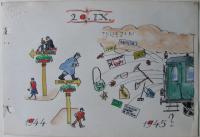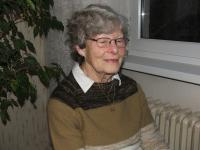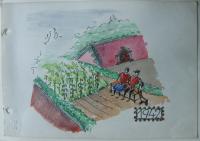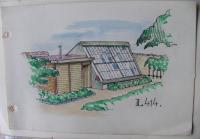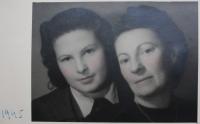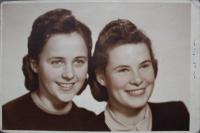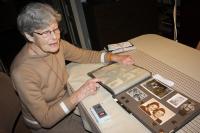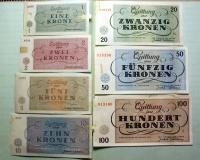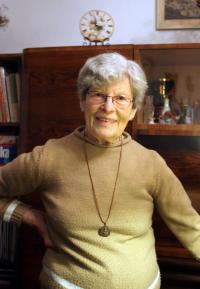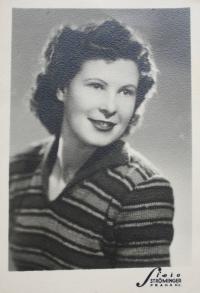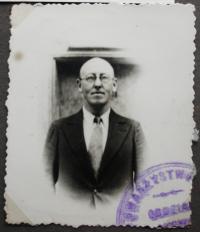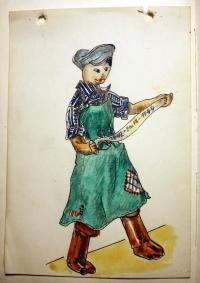This picture here shows how we got rid of our things at Terezin. We imagined that it was the year of 1945, and that we were on the train heading home

Stáhnout obrázek
Mrs. Věra Čeňková, maiden name Auerová, was born in Plzeň from a fully assimilated middle-class Jewish family. Čeňková has lived in Prague since she was 4 years old. She attended the local gymnasium, but was forced to leave the school in the 4th grade for racial reasons. By February 1942, Čeňková and her family were on the Terezín transport train. Sadly, her father died shortly after the arrival to the ghetto. Cenkova and her mother survived. Čeňková worked as a gardener in Terezín. At the end of the war, she worked together with her mother and her best friend, Eva, in Terezín´s mica mine. After the war she worked as a publishing editor.
